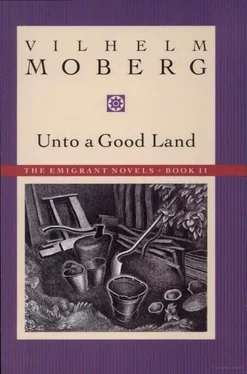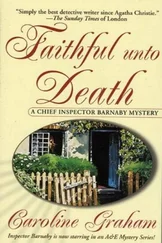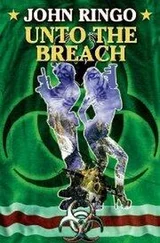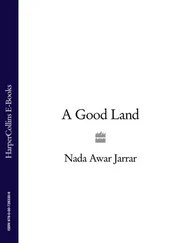The journey on the steam wagon was long, hour after hour passed, and new landscapes came into view, new fields, new pastures, new forests, new crops, and new meadows with more large herds of grazing cattle. Karl Oskar noticed that the cows were larger than those in Sweden, they were white or light yellow in color, like milk and butter; at home they were red or sometimes black. The American horses too were taller than those in Sweden; he wondered if they might be wild horses that had been tamed. The sheep were black and white, fat and round, with bodies like barrels. He saw black and red-brown pigs in the pastures; but the hogs were lean and long legged, not at all resembling those at home. Thus he observed that cattle in the New World were not shaped like the kine at home: cows and horses were larger, sheep fatter, with shorter legs, hogs leaner with longer legs.
Seldom did he see workers out in the fields or forests. There seemed to be a scarcity of people but an abundance of cattle. Seeing the multitude of people in New York, Karl Oskar had begun to worry that America already was overcrowded, that they had arrived too late. He now discovered that his worry was groundless. This country was so vast that it still had room for many more; it wouldn’t be filled up tomorrow, or next year. And he recalled how crowded it had been at home, people had even said there wasn’t enough room for his big nose, and perhaps they had been right. But here there was room for all in his group, here he was sure he would find a place to settle, large enough to turn about in and do as he pleased, and where others would not be disturbed by him or his big nose.
Danjel Andreasson had long been silently watching the green fields on either side of the railroad. At last he said, “This land is fertile and fruitful. It is a good and broad land, a blessed land. We must humbly thank the Lord God for His grace in letting us enter it.”
— 6—
Landberg said that when all went well, about twenty-four hours were required for the journey on the steam wagon to Buffalo. But delays were likely to occur. Once, for instance, the steam wagon had been delayed six hours because the iron rails were covered with a thick layer of grasshoppers.
Ulrika was disappointed that their journey on the steam wagon would come to an end so soon. In her whole life she had never before experienced pleasure like this. The poor back home in Sweden were never treated to such entertainment. Most of them were not allowed to ride on any kind of wagon until they were picked up by the corpse cart. And the gentry in Sweden would have preferred to see them walk to the grave as well.
Their guide nodded to her with a broad smile: “You, my dear Fru, will ride on the steam wagon many times in America.”
He had several times called her Mrs., and it sounded strange to those in her company. She had always been called Unmarried Ulrika of Västergöhl. Under that name she was registered in the church book, and everyone called her so. It was as if it ought particularly to be emphasized that she was unmarried, and it sounded as if she were more unmarried than any other woman. Now they could all see that Ulrika sat there, greatly enjoying it that the first man she met in America raised her to a married state, nay, even to the level of gentry, by calling her Mrs.
She guessed what the others were thinking and she said, half mockingly: “Perhaps I ought to change my name as well.”
It happened often that Swedes changed their names when they came to America, Long Landberg replied. Many took entirely new names. Those named Andersson and Larsson at home had here assumed high-sounding names like Pantzarskiold, Silverkrona, or Lejonstjerna. But it was, of course, mostly rogues who felt in need of changing their names; it was of no use to an honest person, nor did it help a useless one, for here no one got along better because of a noble name, as people did in Sweden.
That was exceedingly just, Ulrika of Västergöhl remarked, although she wouldn’t mind being called Mrs. Ulrika von Lejonstjerna. For a lonely, poor woman, a noble name would be a comfort. But she was sure menfolk would find nothing different in the body of a noble lady than in a simple woman: each was made in the same way.
Landberg laughed heartily, but the members of Ulrika’s group who knew her past did not smile. They were familiar with her talk. And now she was making up to their guide, who couldn’t know what she actually was.
From his bag the guide now took out a number of medicine jars which he was accustomed to sell to immigrants during his trips. Painkiller was the name on the jars, and he explained what it meant. These were pills which healed all ailments attacking newcomers during their first weeks in America. Painkiller healed fatal diseases as well as small wounds and scratches: cholera, red soot, diarrhea, fever, ague, yellow fever. A jar cost one dollar, leaving Landberg with a profit of only five cents. But he was not one to take advantage of his countrymen.
Danjel and Jonas Petter had bought a jar of the Painkiller, mostly to be agreeable to the seller. Karl Oskar declined; his family was in good health at the moment and not in need of medicines. Landberg kept urging him — it would be well to have a jar handy in case of sickness; there were many fatal diseases in America, neither young nor old could be sure of tomorrow. But Karl Oskar could not forget how the money in his skin pouch had shrunk; he had paid twenty-four dollars for their passage to Chicago; if they were to have any money at all left when they arrived in Minnesota, he must confine himself to buying the food his family needed on the journey.
Arvid complained of his toothache to Danjel, who bought another jar of Painkiller for his servant. Landberg told Arvid that in case the pills didn’t help the toothache he could have all his teeth pulled painlessly with the aid of gas at only twenty-five cents a tooth. Then he could buy new teeth. A professor here in America had recently discovered how to make teeth of gutta-percha; they were comfortable and indestructible; they cost only ten dollars a row, or a dollar apiece. He advised Arvid to get a whole row, since this was cheaper.
Danjel again opened his purse with the broad brass lock and took from it a new silver dollar. He looked carefully at the strange American coin before he handed it to Landberg: on one side was an eagle with extended wings and searching eyes; the bird held some silver branches in one talon and some sharp arrows in the other; turning the coin, he saw a bare-armed woman dressed in flowing robes; she held bunches of flowers in her hands and sat there like a queen on her throne, surrounded by a wreath of beautiful silver stars.
“They have nice money in America,” said Danjel. “It’s decorated with the stars of heaven.”
“The stars represent the first thirteen states,” explained Landberg.
“What does the searching eagle represent?”
“I don’t know. The Americans have no king to put on their money. Perhaps they find a bird of prey more suitable.”
Karl Oskar also had taken out a silver dollar to inspect; it might be well to familiarize himself with the coin of the country.
“There is writing under the throne where the woman sits,” he said. “Mr. Landberg, can you interpret it?”
“Yes, that I can. It says ‘In God We Trust.’”
“What are you saying, man!” exclaimed Danjel. “Is our Creed printed on the money?”
“Yes, that’s so. These words are printed on all money in this country.”
A ray of happiness lit Danjel’s eyes, and he began to examine his silver dollar with renewed interest and wonder: “Can that really be true? They have faith in God, those who make the money in this country. That’s good to hear; no heathenism exists in this country.”
Читать дальше










